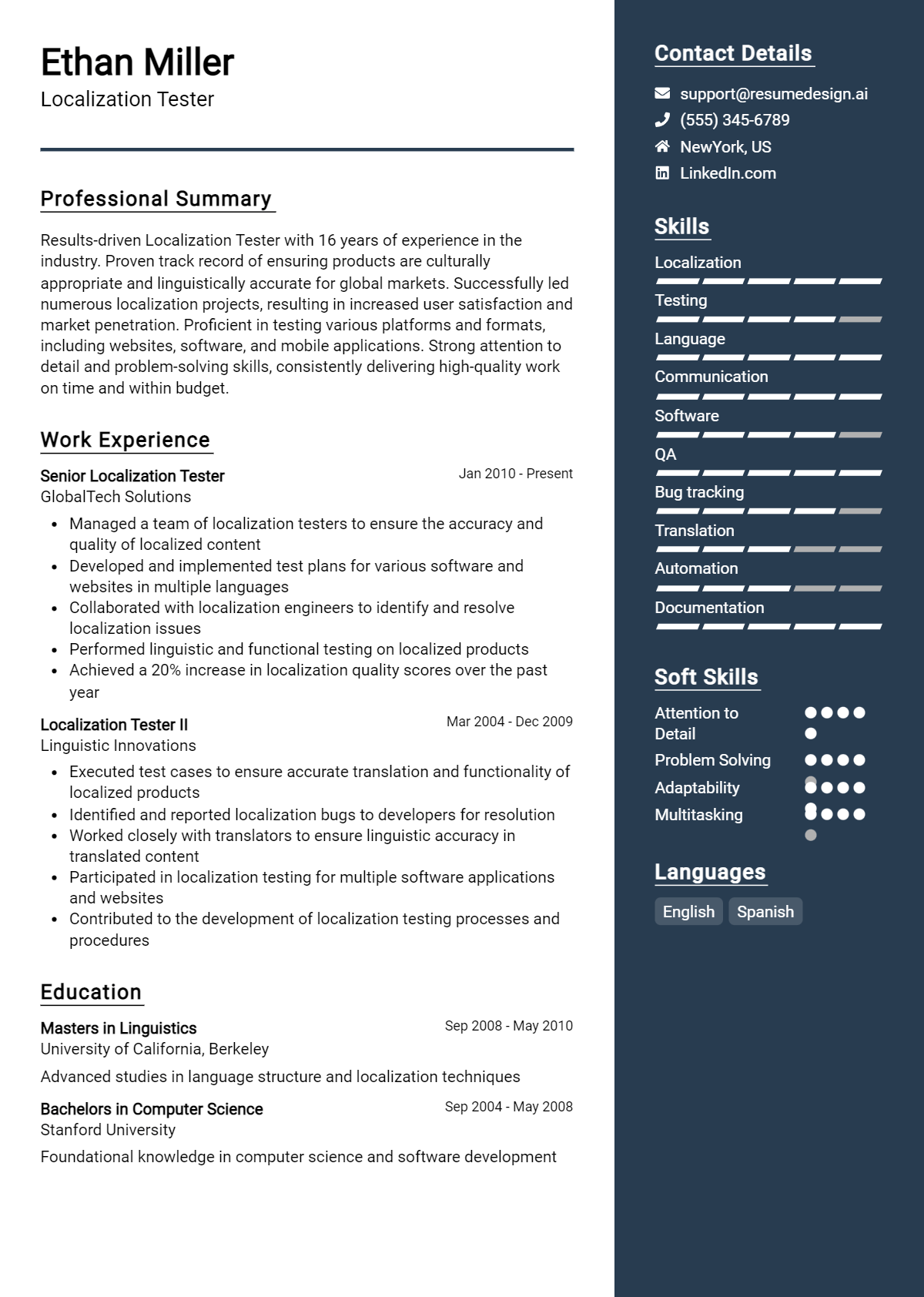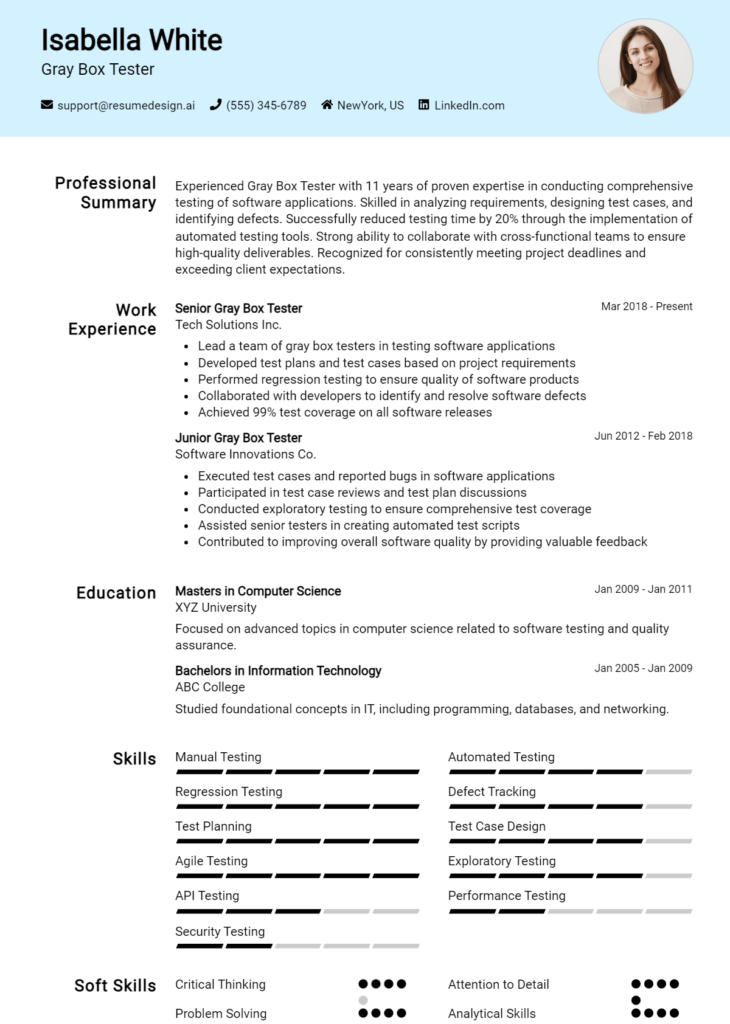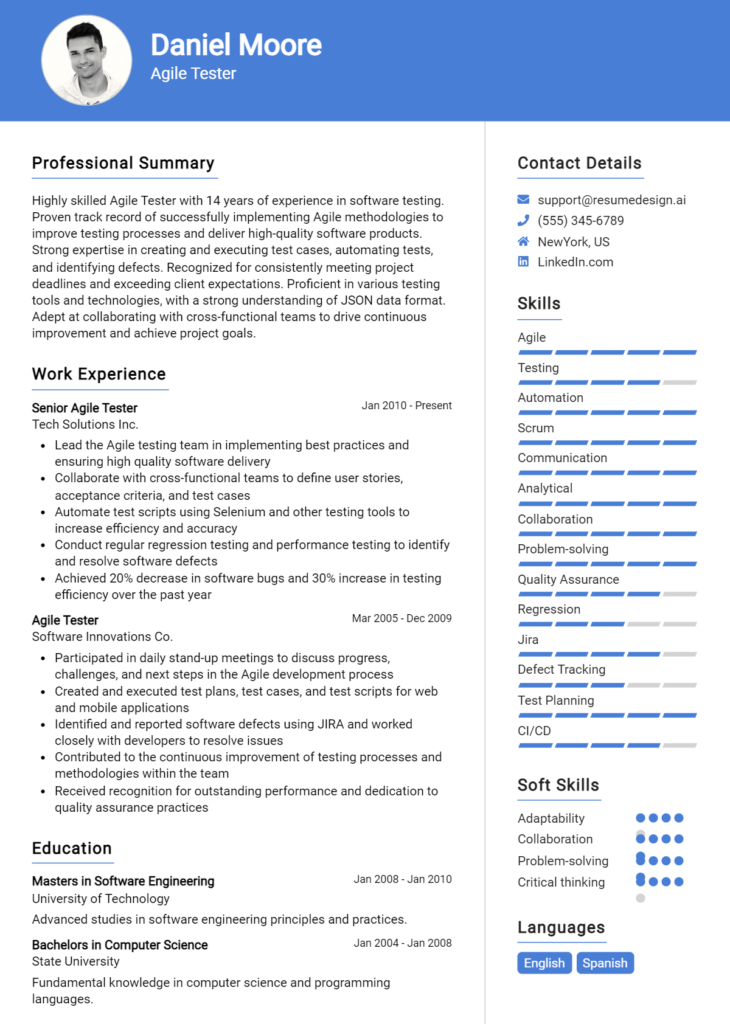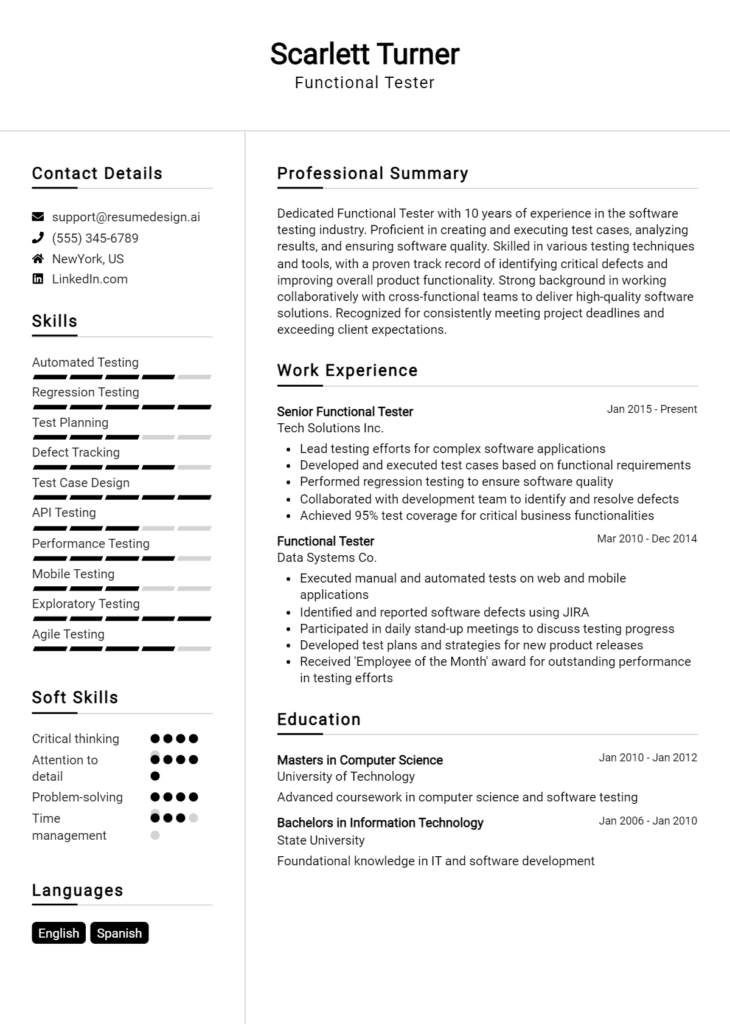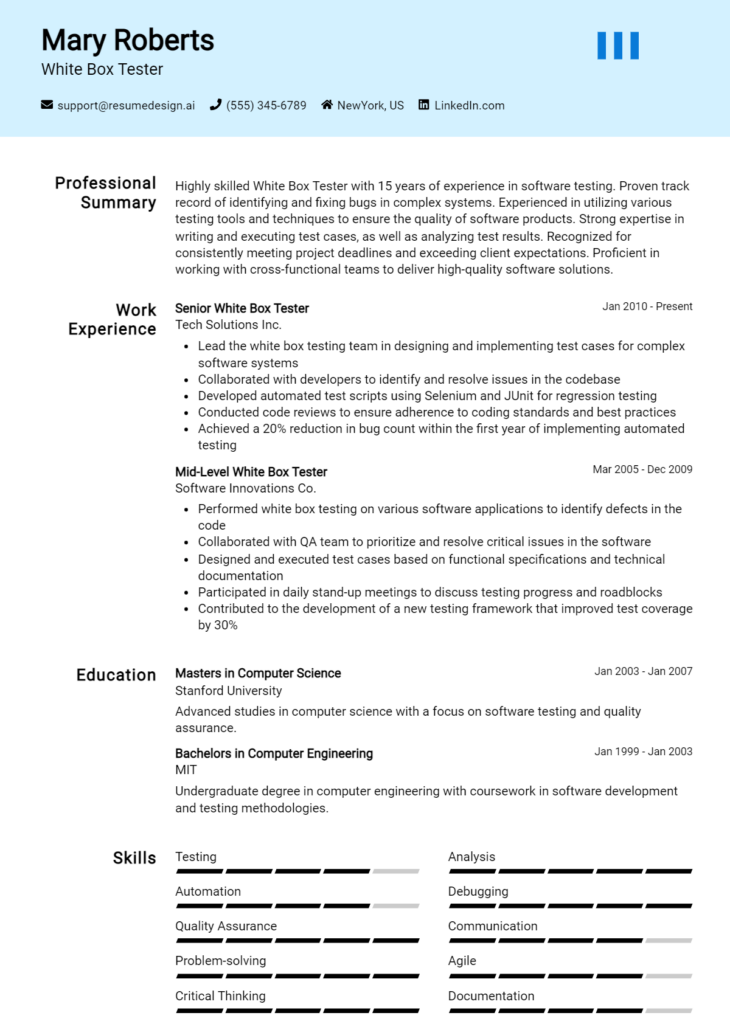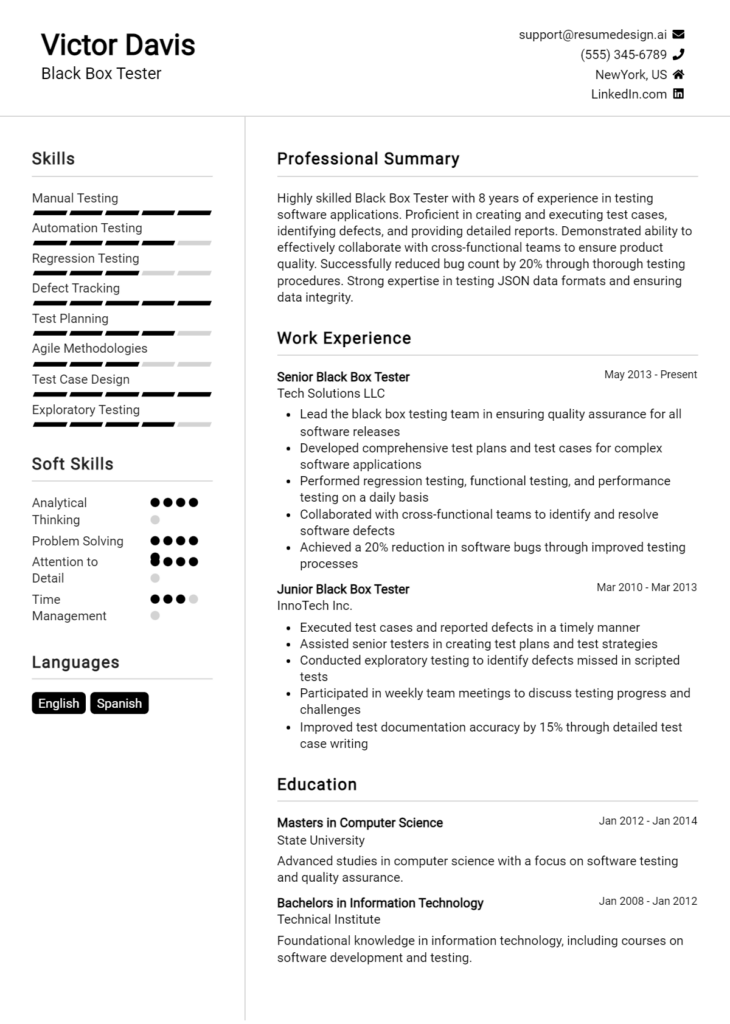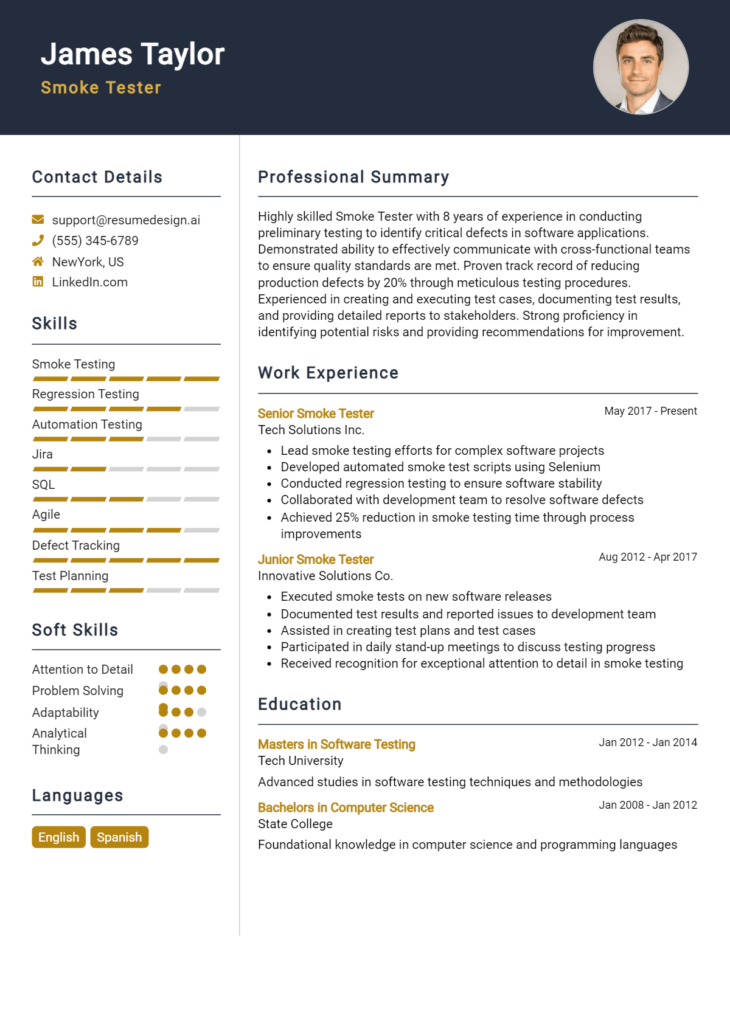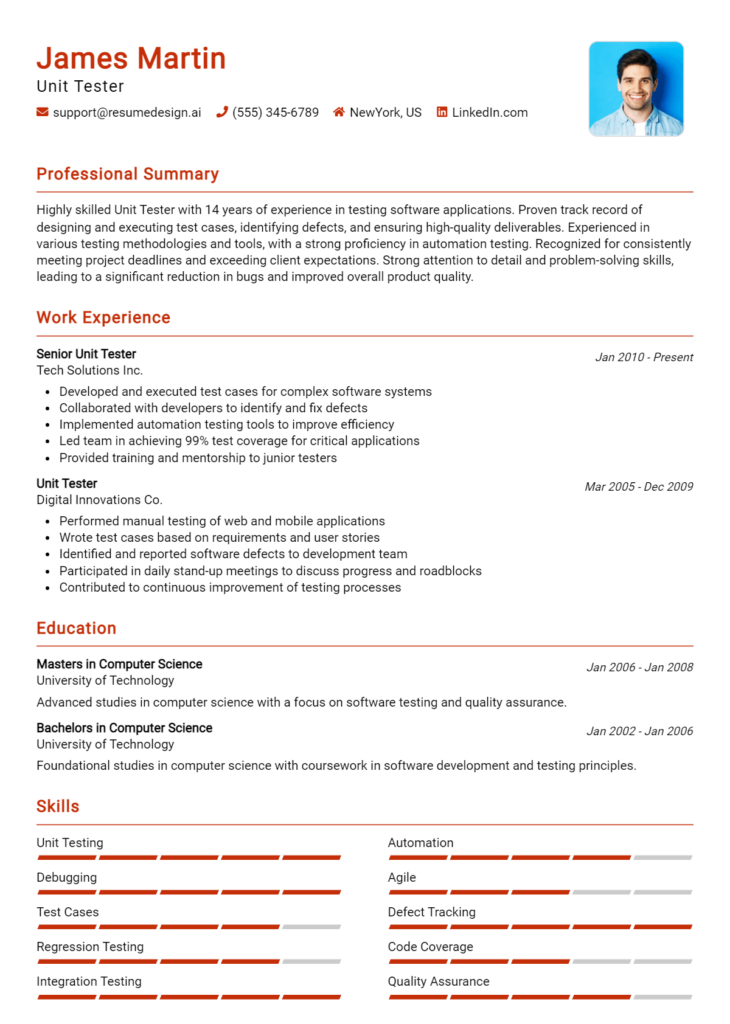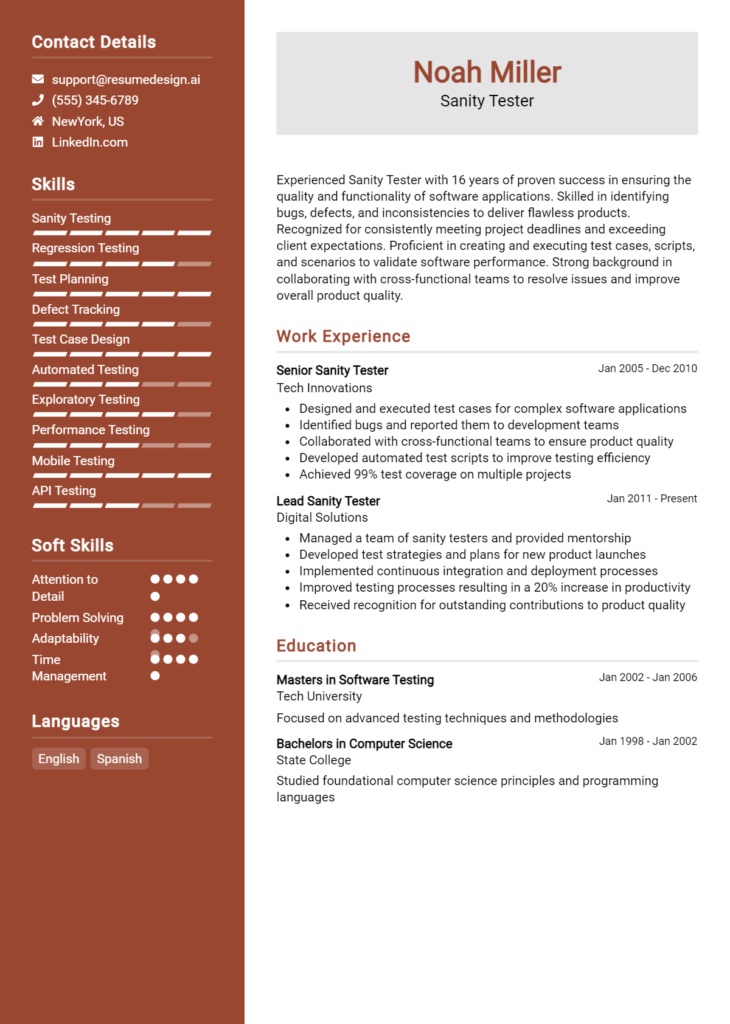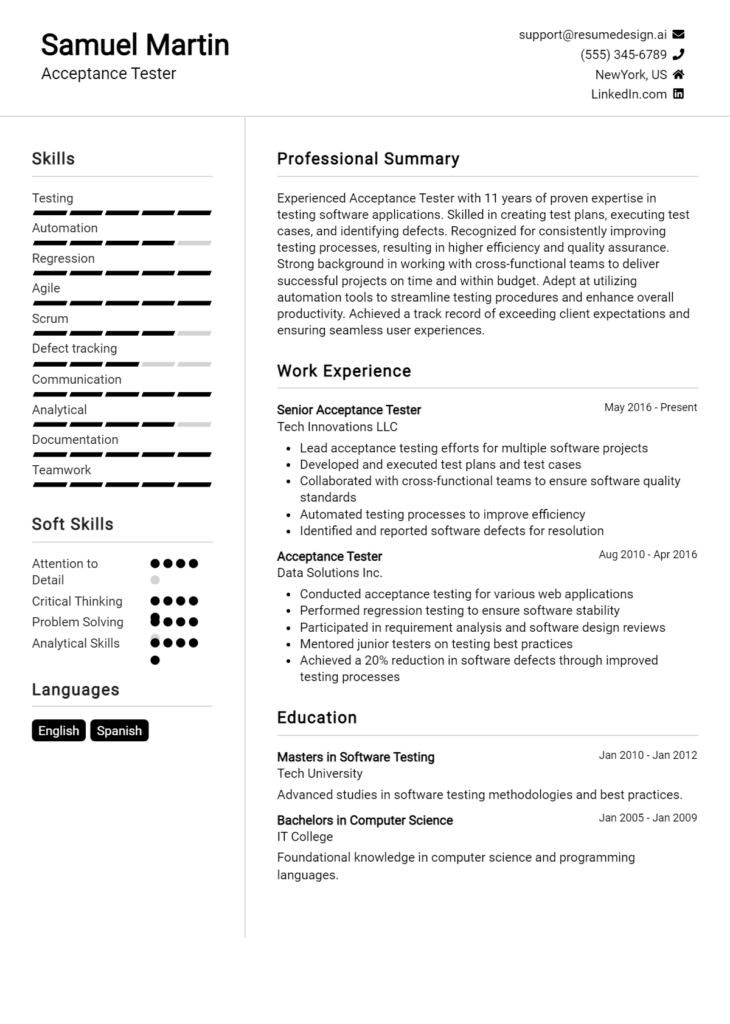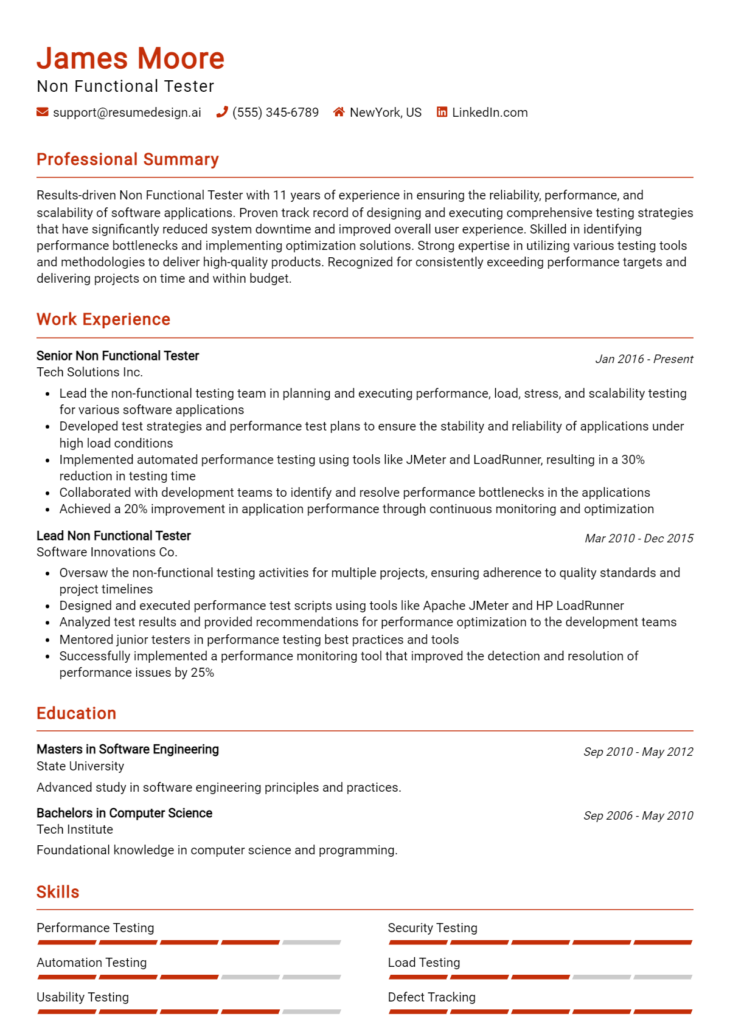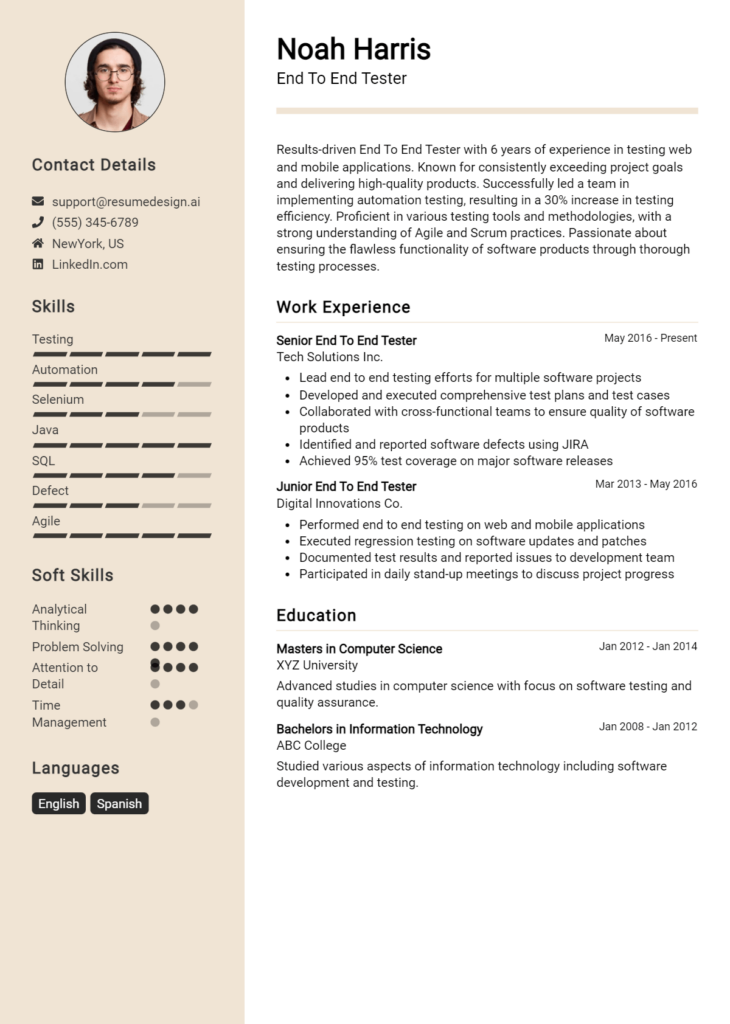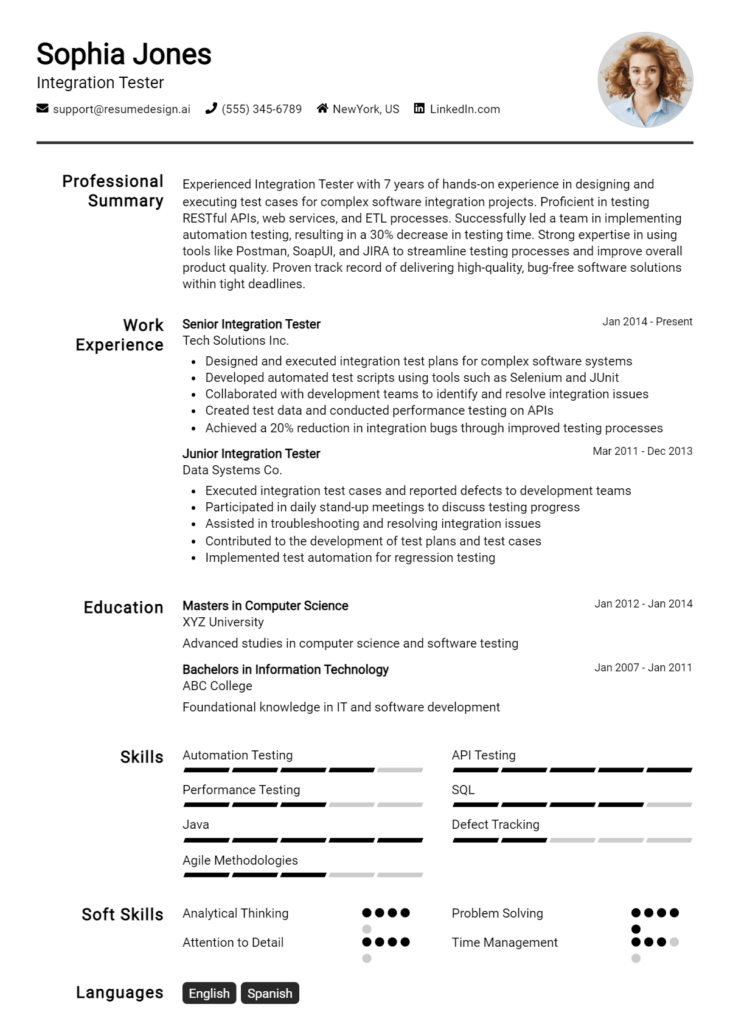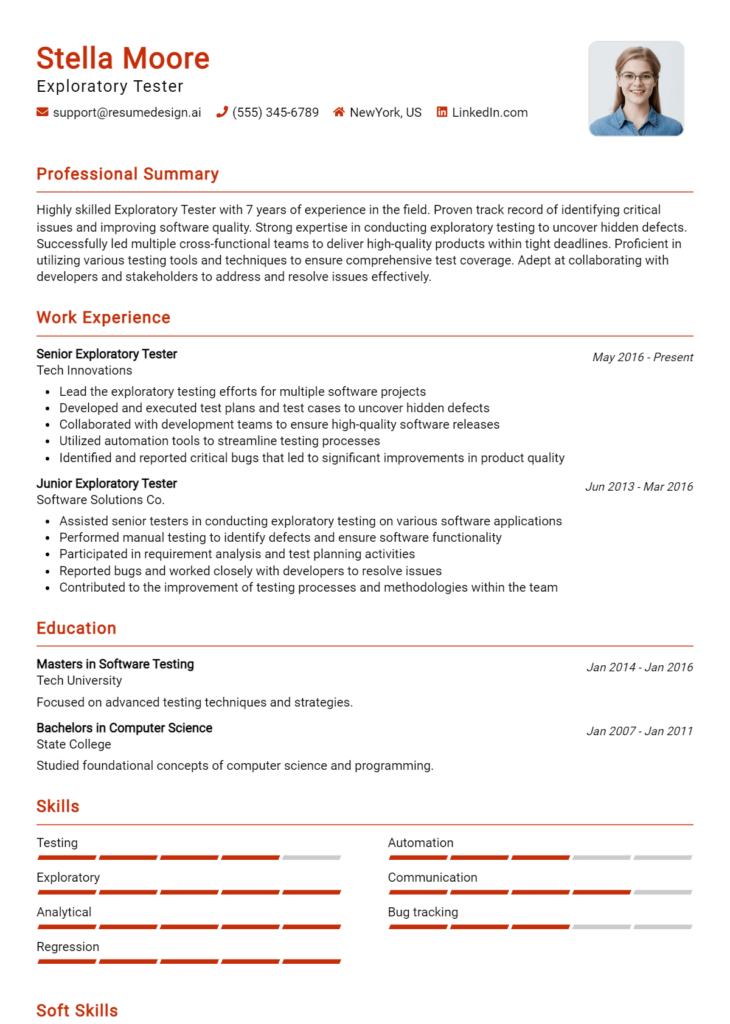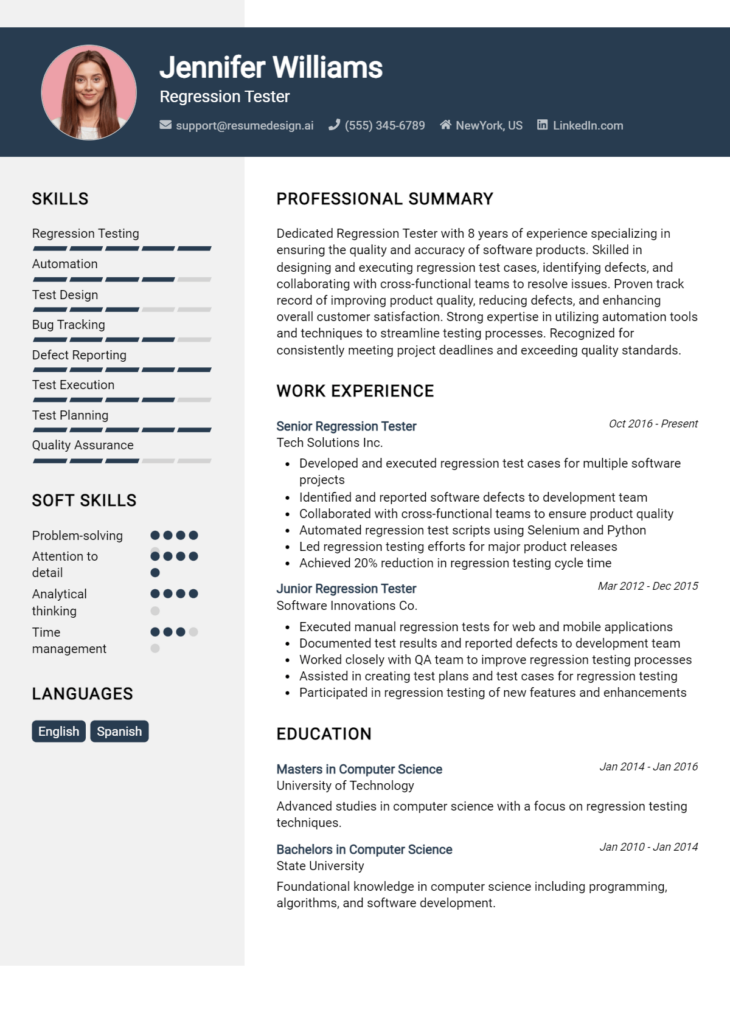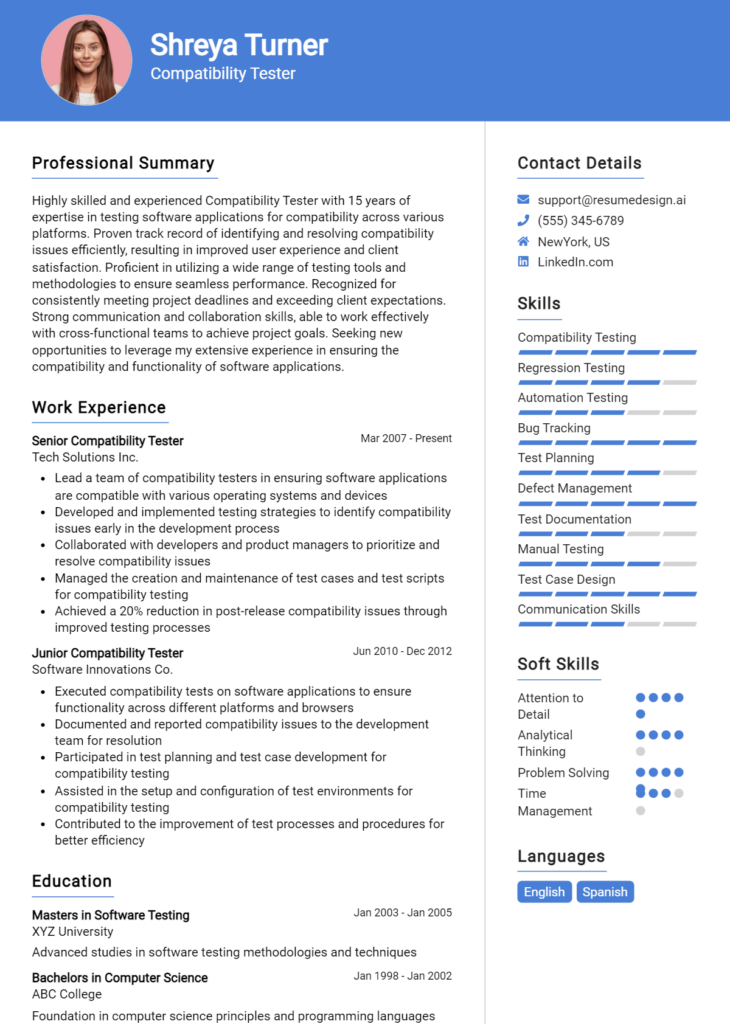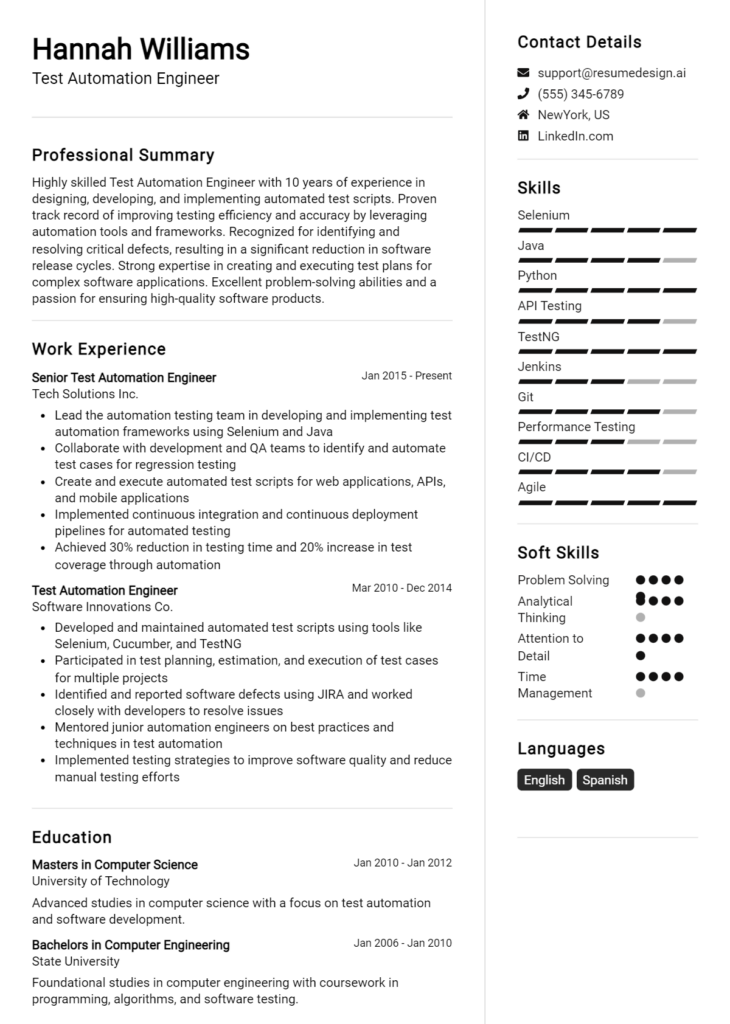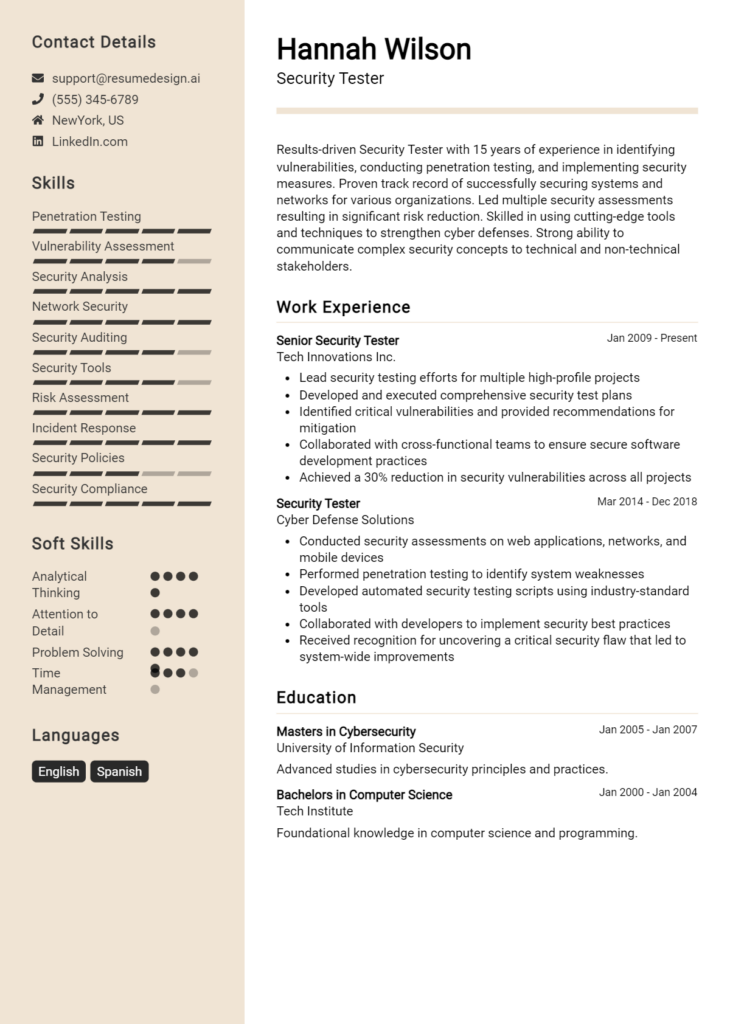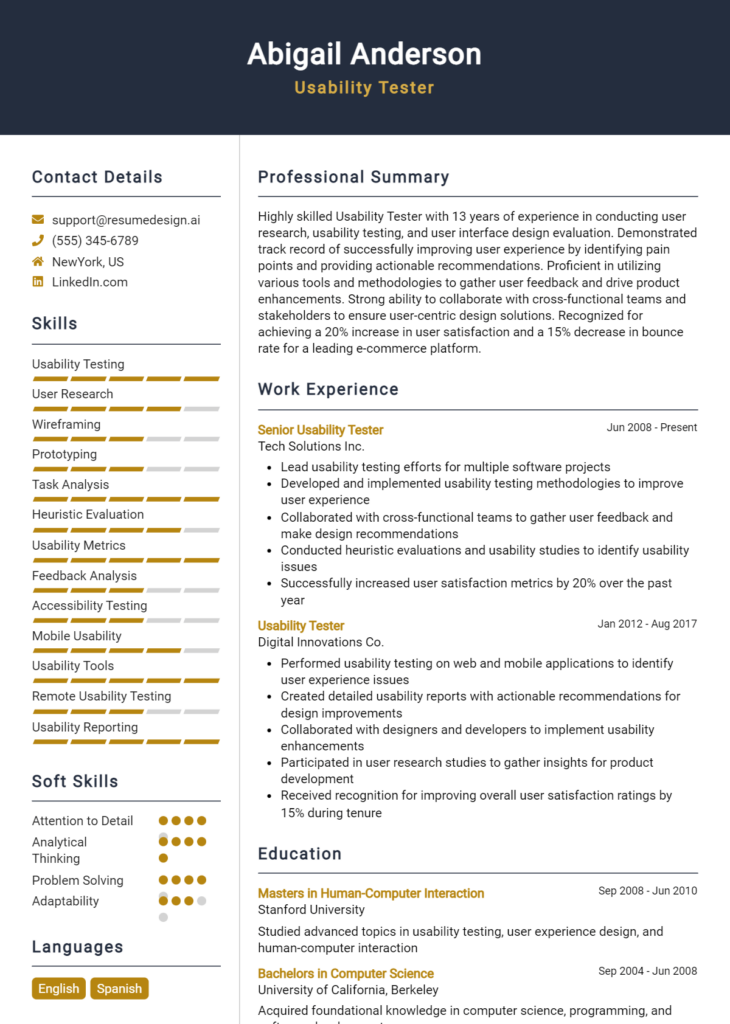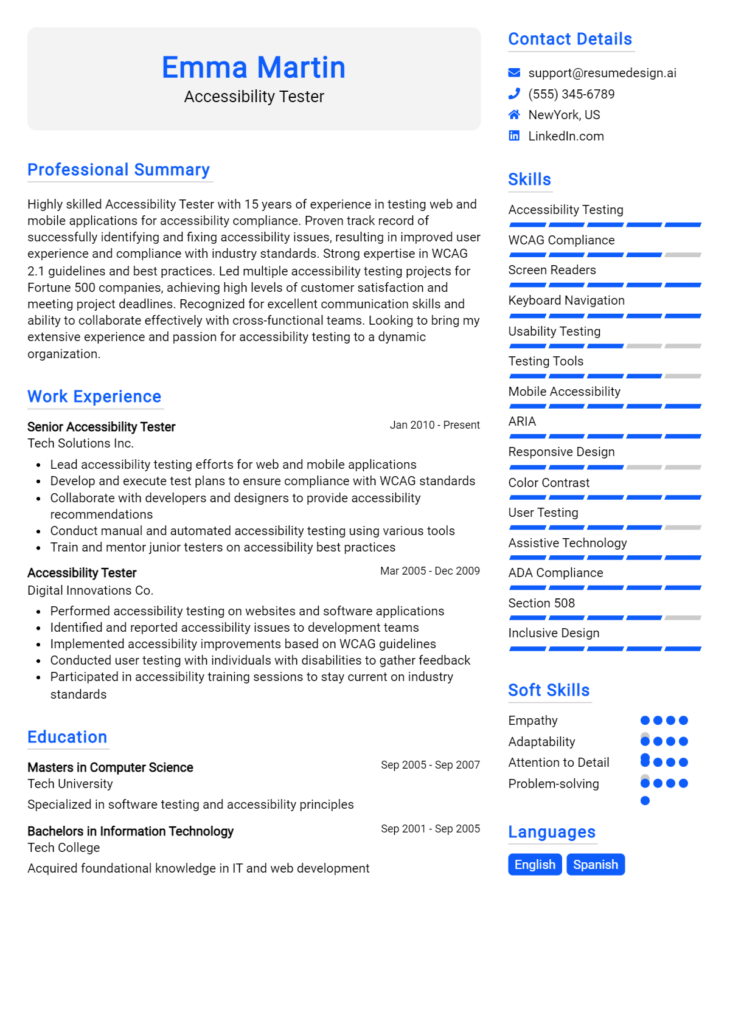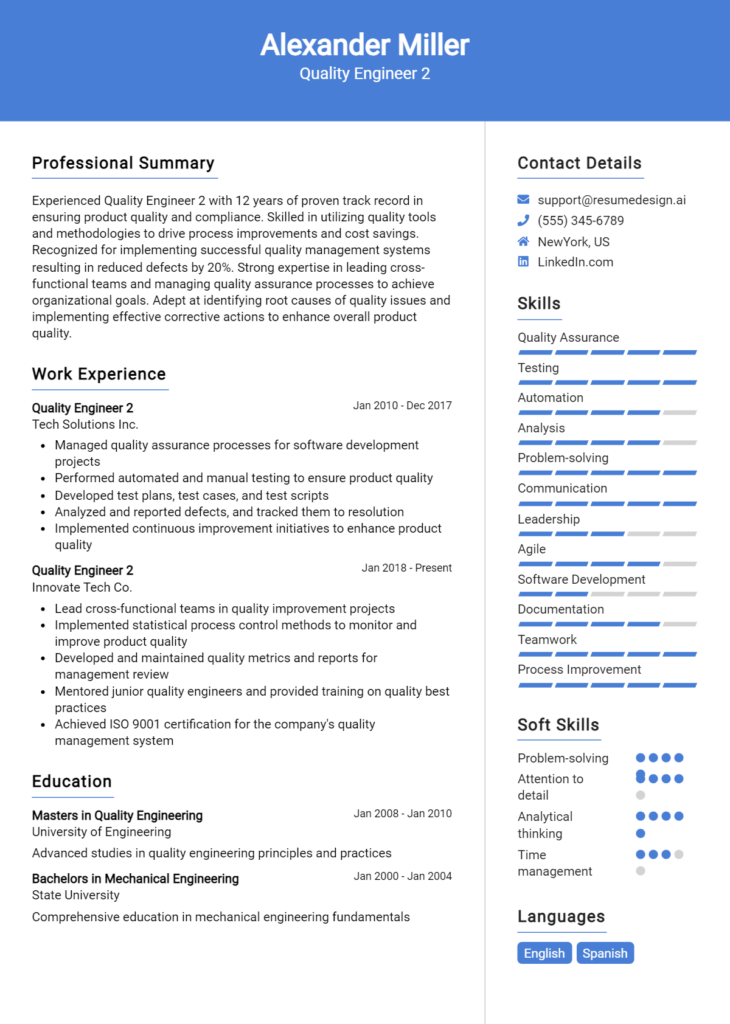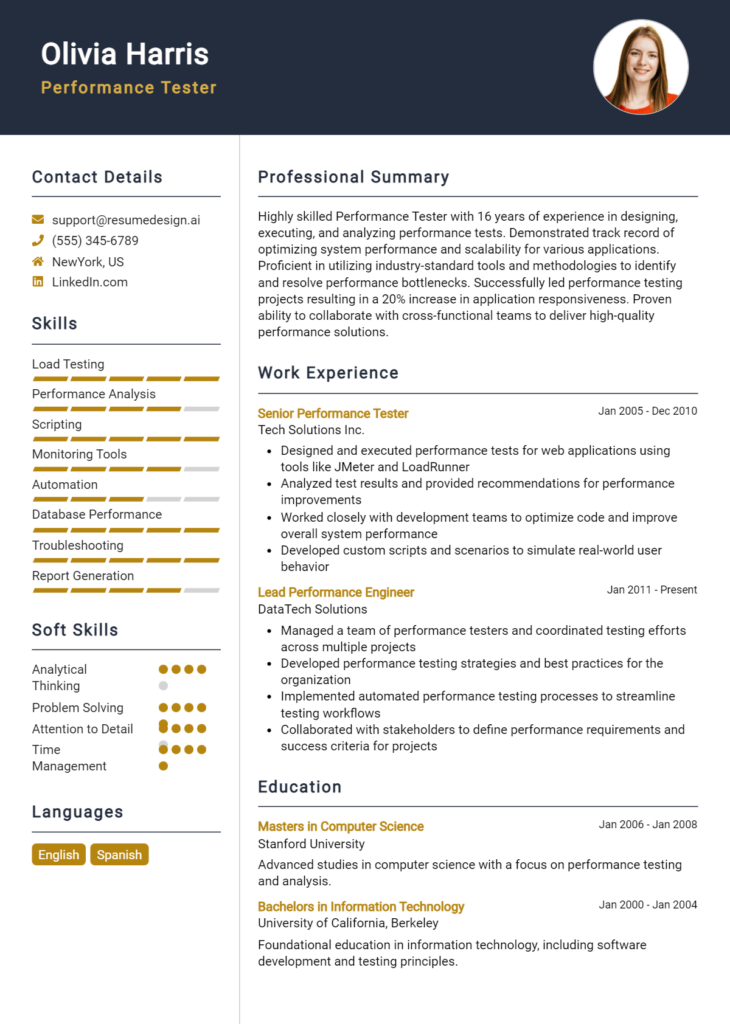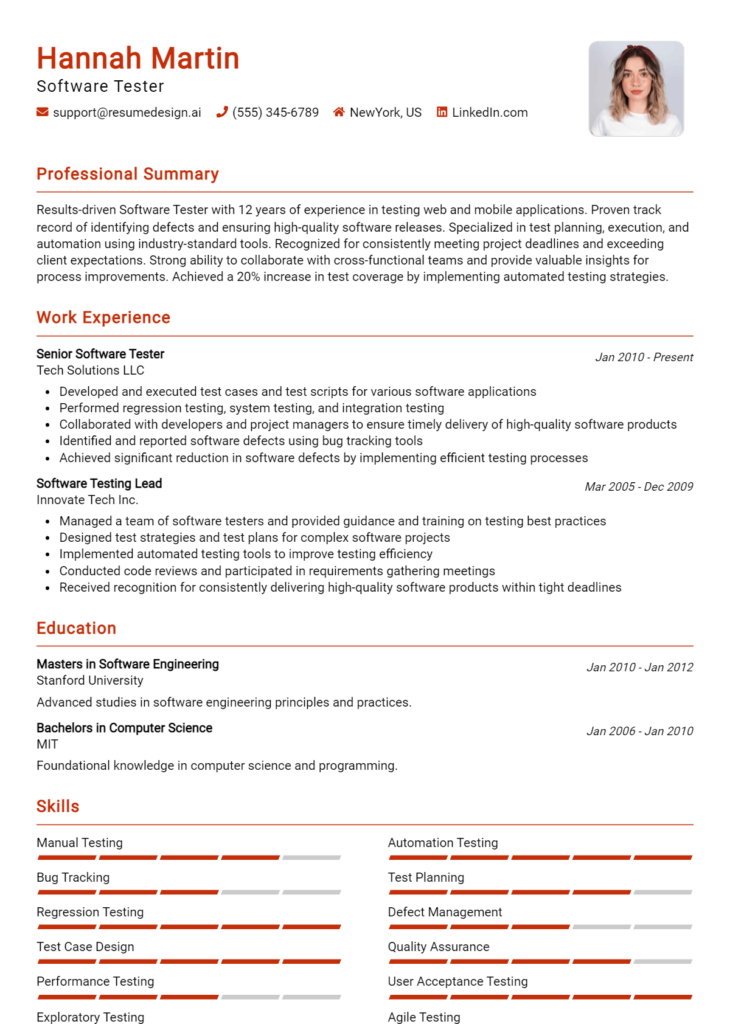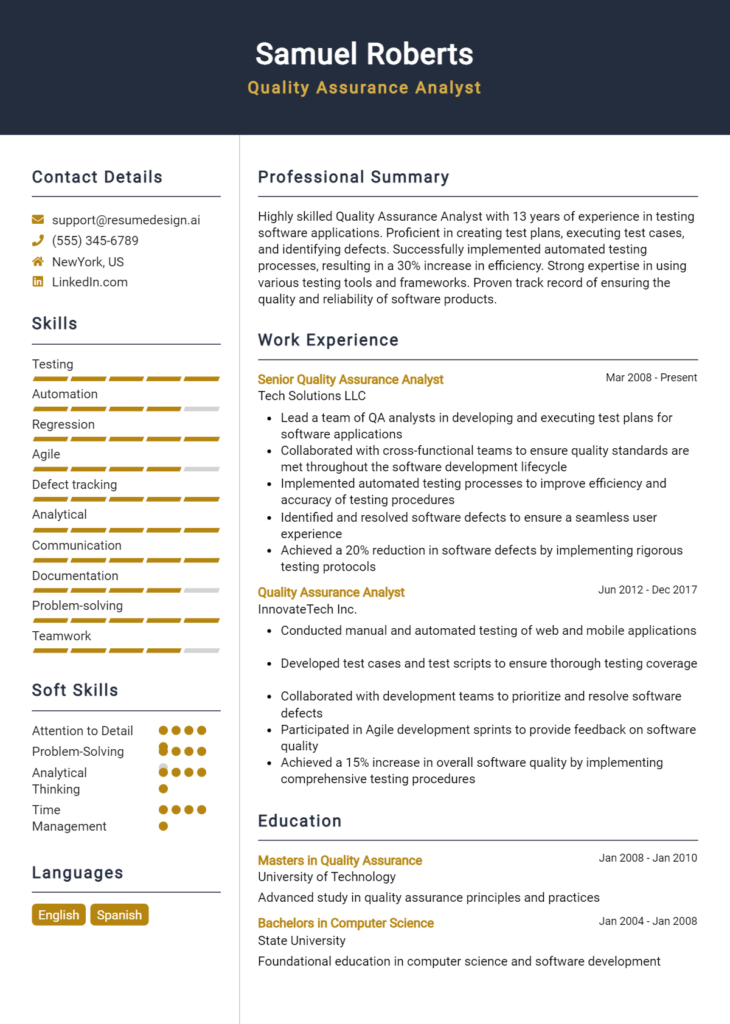Localization Tester Core Responsibilities
A Localization Tester plays a critical role in ensuring that software, games, and applications meet the linguistic and cultural expectations of target markets. This involves conducting rigorous testing to identify localization issues, collaborating closely with developers, translators, and quality assurance teams. Key skills include technical proficiency, operational acumen, and strong problem-solving capabilities. These competencies are essential for enhancing user experience and achieving organizational goals. A well-structured resume can effectively highlight these qualifications, showcasing the candidate’s ability to bridge various departments and functions.
Common Responsibilities Listed on Localization Tester Resume
- Conduct thorough testing of localized software and applications.
- Identify and report localization bugs and cultural inconsistencies.
- Collaborate with translators and developers to resolve issues.
- Verify text display, layout, and functionality across different languages.
- Ensure compliance with localization standards and guidelines.
- Participate in pre-release and post-release testing phases.
- Create and maintain detailed documentation of testing processes.
- Provide feedback on user experience and localization quality.
- Assist in developing testing tools and methodologies.
- Communicate effectively with cross-functional teams.
- Stay updated on localization trends and best practices.
- Support continuous improvement initiatives in localization workflows.
High-Level Resume Tips for Localization Tester Professionals
In the competitive field of localization testing, a well-crafted resume is not just a formality; it's a critical tool for making a strong first impression on potential employers. As the initial point of contact, your resume must effectively showcase your unique skills, experiences, and achievements that set you apart from other candidates. A compelling resume highlights your expertise in localization and testing, demonstrating your ability to ensure software and content resonate with diverse audiences. This guide will provide practical and actionable tips tailored specifically for Localization Tester professionals, empowering you to create a resume that opens doors to exciting job opportunities.
Top Resume Tips for Localization Tester Professionals
- Tailor your resume to the specific job description by incorporating relevant keywords and phrases that match the requirements.
- Highlight your experience with localization tools and software, such as CAT tools, automated testing frameworks, and version control systems.
- Showcase your understanding of different cultures and languages, emphasizing any multilingual capabilities you possess.
- Quantify your achievements by including metrics, such as the number of projects completed, error rates reduced, or testing cycles improved.
- Detail your experience in both manual and automated testing processes to demonstrate a comprehensive skill set.
- Include relevant certifications, such as ISTQB or certification in localization, to enhance your credibility in the field.
- Emphasize your problem-solving skills by providing examples of how you've resolved localization issues in previous projects.
- Use a clean, professional layout that enhances readability, making it easy for hiring managers to find the information they need quickly.
- Incorporate a brief summary or objective at the top of your resume that outlines your career goals and what you bring to the table.
- Proofread your resume multiple times to ensure there are no errors, as attention to detail is crucial in localization testing.
By implementing these tips, you can significantly enhance the effectiveness of your resume, increasing your chances of landing a position in the Localization Tester field. A well-structured and tailored resume not only showcases your qualifications but also projects your professionalism and attention to detail—key attributes that employers seek in localization testing professionals.
Why Resume Headlines & Titles are Important for Localization Tester
In the competitive field of localization testing, the importance of a strong resume headline or title cannot be overstated. A well-crafted headline serves as the first impression for hiring managers, instantly summarizing a candidate's key qualifications and making a compelling case for their candidacy. It should be concise, relevant, and directly aligned with the job being applied for, effectively grabbing attention and prompting further interest in the applicant's experience and skills. By encapsulating the essence of a candidate's expertise in one impactful phrase, a strong resume headline can significantly enhance the chances of standing out in a crowded job market.
Best Practices for Crafting Resume Headlines for Localization Tester
- Keep it concise: Aim for one impactful phrase that sums up your qualifications.
- Be specific: Use terminology relevant to localization testing to showcase your expertise.
- Highlight key strengths: Focus on your most impressive skills or accomplishments.
- Use action-oriented language: Choose dynamic words to convey a sense of proactivity.
- Tailor to the job description: Align your headline with the specific requirements of the role.
- Include relevant certifications: Mention any qualifications that set you apart in localization testing.
- Avoid jargon: Ensure clarity by using language that is easily understood by all hiring managers.
- Showcase results: If possible, include metrics or outcomes that demonstrate your impact in previous roles.
Example Resume Headlines for Localization Tester
Strong Resume Headlines
Detail-Oriented Localization Tester with 5+ Years of Experience in Multilingual Software Quality Assurance
Proficient Localization Tester Specializing in User Experience and Functional Testing Across Diverse Platforms
Bilingual Localization Expert Committed to Delivering Flawless Software Releases and Enhancing User Satisfaction
Weak Resume Headlines
Localization Tester
Experienced Professional Looking for a Job
The strong resume headlines effectively convey the candidates' unique strengths and relevant experience, making them immediately appealing to hiring managers. They are specific, action-oriented, and tailored to the localization testing field, showcasing the candidates' qualifications succinctly. In contrast, the weak headlines lack specificity and fail to communicate any real value, making them forgettable and less likely to capture the attention of prospective employers. By avoiding generic phrases and instead focusing on impactful qualifications, candidates can significantly enhance their chances of making a lasting impression.
Writing an Exceptional Localization Tester Resume Summary
A well-crafted resume summary is crucial for a Localization Tester as it serves as the first impression on hiring managers, encapsulating the candidate's qualifications in a concise format. A strong summary highlights key skills, relevant experience, and impressive accomplishments that align with the specific demands of the localization testing role. By quickly conveying the candidate's value, a compelling summary can capture the attention of hiring managers, making it easier for them to see how the applicant fits into their team and projects. It should be impactful, tailored to the job description, and succinctly present the most relevant information to entice further reading.
Best Practices for Writing a Localization Tester Resume Summary
- Quantify Achievements: Use numbers to highlight your contributions, such as increased efficiency rates or successful project completions.
- Focus on Skills: Clearly outline your technical skills, language proficiency, and testing methodologies relevant to localization.
- Tailor the Summary: Customize your summary for each job application to reflect the specific requirements of the role.
- Highlight Relevant Experience: Emphasize your experience in localization testing, especially in different languages or cultural contexts.
- Use Action Verbs: Start sentences with strong action verbs to convey your proactive approach and contributions.
- Showcase Industry Knowledge: Mention familiarity with localization tools, software, or industry trends to demonstrate expertise.
- Keep It Concise: Aim for 3-5 sentences that deliver maximum impact without overwhelming the reader.
- Reflect Personal Branding: Use the summary to communicate your unique professional identity and what sets you apart from other candidates.
Example Localization Tester Resume Summaries
Strong Resume Summaries
Detail-oriented Localization Tester with over 5 years of experience in software localization and quality assurance. Successfully led a team that increased localization efficiency by 30%, ensuring high-quality user experiences across 10 languages.
Bilingual Localization Tester skilled in executing comprehensive testing for mobile applications, contributing to a 40% reduction in post-release defects. Proficient in using tools such as SDL Trados and QA Complete to streamline processes.
Results-driven Localization Tester with a proven track record of managing projects that achieved 98% localization accuracy. Expertise in cultural adaptation and linguistic nuances, enhancing product market fit in diverse regions.
Weak Resume Summaries
Experienced Localization Tester looking for a new opportunity. I have worked on many projects and have some knowledge of testing software.
Localization Tester with skills in several areas. I am a team player and enjoy working on different projects related to localization.
The examples provided demonstrate clear distinctions between strong and weak resume summaries. Strong summaries are specific, quantifiable, and highlight relevant skills and experiences that align directly with the role of a Localization Tester. In contrast, weak summaries are vague, lack measurable outcomes, and fail to convey the candidate's unique qualifications, making them less compelling to hiring managers.
Work Experience Section for Localization Tester Resume
The work experience section of a Localization Tester resume is critical as it serves as a platform to exhibit the candidate's technical skills, team management capabilities, and commitment to delivering high-quality products. This section not only outlines the candidate's previous roles and responsibilities but also highlights their contributions to the localization process, demonstrating how they ensured that products were culturally and linguistically appropriate for target markets. By quantifying achievements and aligning experiences with industry standards, candidates can effectively showcase their value to potential employers, making it essential to present this information clearly and compellingly.
Best Practices for Localization Tester Work Experience
- Highlight specific technical skills relevant to localization tools and software.
- Quantify achievements with metrics, such as improved testing efficiency or error reduction percentages.
- Include examples of successful collaboration with cross-functional teams.
- Demonstrate leadership by showcasing experiences where you managed testing teams or projects.
- Align your experiences with industry standards and best practices in localization.
- Use action verbs and concise language to convey impact and results.
- Tailor your work experience to the job description, emphasizing relevant skills and accomplishments.
- Incorporate feedback or recognition received from stakeholders to add credibility.
Example Work Experiences for Localization Tester
Strong Experiences
- Led a team of 5 localization testers, increasing testing efficiency by 30% through the implementation of automated testing tools.
- Successfully localized and tested a major software release for 10 languages, achieving a 99% accuracy rate in translations and a 25% reduction in user-reported issues.
- Collaborated with developers and product managers to create a localization strategy that improved time-to-market by 15% for new products.
- Trained and mentored junior testers, resulting in a 50% improvement in their testing capabilities and overall team performance.
Weak Experiences
- Worked on localization testing for various projects.
- Assisted team members with testing tasks.
- Participated in meetings related to localization processes.
- Performed general testing duties as assigned.
The examples above illustrate the stark contrast between strong and weak experiences. Strong experiences are characterized by specific achievements, quantifiable results, and clear indications of leadership and collaboration, showcasing the candidate's effectiveness and value. In contrast, weak experiences lack detail and measurable outcomes, presenting vague responsibilities that do not demonstrate the candidate's true capabilities or contributions to localization efforts.
Education and Certifications Section for Localization Tester Resume
The education and certifications section of a Localization Tester resume plays a critical role in showcasing the candidate's academic background and professional qualifications. This section serves as a testament to the candidate's commitment to the field, highlighting relevant degrees, industry-recognized certifications, and ongoing learning efforts. By including pertinent coursework, certifications, and specialized training, candidates can significantly elevate their credibility and demonstrate their alignment with the specific requirements of the Localization Tester role. This not only provides employers with insights into the candidate's formal education but also reflects their dedication to staying updated in an ever-evolving industry.
Best Practices for Localization Tester Education and Certifications
- Include only relevant degrees and certifications that pertain to localization, linguistics, or quality assurance.
- List advanced degrees or certifications prominently to highlight higher education achievements.
- Provide details on relevant coursework that showcases skills directly applicable to localization testing.
- Use industry-recognized certification programs, such as those offered by localization associations.
- Highlight any specialized training, workshops, or seminars attended that pertain to localization technologies or methodologies.
- Keep the information concise and focused; avoid cluttering this section with unrelated qualifications.
- Consider including any language proficiencies, as they can enhance the candidate's suitability for localization tasks.
- Regularly update this section to reflect new certifications or educational pursuits to demonstrate continuous learning.
Example Education and Certifications for Localization Tester
Strong Examples
- B.A. in Linguistics, University of California, Berkeley
- Certified Localization Professional (CLP) from the Globalization and Localization Association (GALA)
- Coursework in Software Testing and Quality Assurance, Online Learning Platform
- Certificate in Translation and Localization Management, University of Denver
Weak Examples
- B.A. in History, State University
- Certification in Basic Computer Skills (2005)
- High School Diploma with no relevant coursework
- Online course in Creative Writing unrelated to localization
The strong examples are considered effective because they are directly relevant to the Localization Tester role, showcasing education and certifications that align with industry standards and best practices. In contrast, the weak examples represent qualifications that either lack relevance to the field of localization or are outdated, failing to demonstrate the candidate's expertise or commitment to professional development in this specific area.
Top Skills & Keywords for Localization Tester Resume
In the competitive field of localization testing, having a well-crafted resume that highlights relevant skills is crucial for standing out to potential employers. As a Localization Tester, showcasing both hard and soft skills can significantly enhance your chances of landing an interview. Hard skills demonstrate your technical proficiency and knowledge of localization tools and processes, while soft skills reflect your ability to communicate effectively, work collaboratively, and adapt to changing environments. Together, these skills create a comprehensive picture of your capabilities and readiness for the demands of the role, making it essential to carefully curate your resume to include the most pertinent skills for the job.
Top Hard & Soft Skills for Localization Tester
Soft Skills
- Attention to Detail
- Communication Skills
- Problem-Solving Ability
- Adaptability
- Team Collaboration
- Cultural Awareness
- Time Management
- Analytical Thinking
- Critical Thinking
- Flexibility
Hard Skills
- Proficiency in Localization Tools (e.g., SDL Trados, MemoQ)
- Knowledge of Quality Assurance Processes
- Familiarity with Software Testing Methodologies
- Understanding of Internationalization (i18n)
- Experience with Bug Tracking Systems (e.g., JIRA)
- Language Proficiency (specific to target languages)
- Knowledge of File Formats (e.g., XML, JSON)
- Familiarity with Version Control Systems (e.g., Git)
- Understanding of User Interface (UI) and User Experience (UX) Principles
- Experience with Automated Testing Tools
Incorporating these skills into your work experience section and throughout your resume can effectively convey your qualifications as a Localization Tester.
Stand Out with a Winning Localization Tester Cover Letter
Dear [Hiring Manager's Name],
I am writing to express my interest in the Localization Tester position at [Company Name], as advertised on [where you found the job posting]. With a strong background in software testing and a passion for languages and culture, I am excited about the opportunity to contribute to your team and ensure that your products resonate with diverse audiences worldwide. My experience in localization testing, combined with my keen attention to detail and problem-solving skills, makes me a strong candidate for this role.
In my previous position at [Previous Company Name], I played a crucial role in the localization testing of several software applications and games. My responsibilities included reviewing translated content for accuracy and cultural appropriateness, identifying any functional issues, and providing actionable feedback to developers. I collaborated closely with project managers and linguists to ensure that all localized versions met the highest quality standards. My proficiency in multiple languages, including [list languages], has allowed me to effectively communicate with international teams and gain insights into the nuances that matter most to users in different regions.
I am particularly impressed by [Company Name]'s commitment to delivering high-quality products that cater to a global audience. I believe my skills in both testing and cultural adaptation will help enhance the user experience for your customers. I am eager to bring my expertise in software localization and my passion for improving user interfaces to your team. I am confident that my proactive approach and dedication to quality assurance will make a significant contribution to the success of your localization efforts.
Thank you for considering my application. I look forward to the opportunity to discuss how my background, skills, and enthusiasms align with the goals of [Company Name]. I am excited about the possibility of working together to create exceptional localized products that engage and delight users across the globe.
Sincerely,
[Your Name]
[Your Phone Number]
[Your Email Address]
Common Mistakes to Avoid in a Localization Tester Resume
When crafting a resume for a Localization Tester position, it’s essential to present your skills and experiences effectively. However, many candidates make common mistakes that can hinder their chances of landing an interview. Understanding these pitfalls can help you create a standout resume that highlights your qualifications and aligns with the expectations of hiring managers in the localization industry.
Ignoring Localization-Specific Terminology: Failing to incorporate industry-specific jargon and terms can make your resume sound generic and less relevant to the role. Make sure to use terminology that reflects your understanding of localization processes.
Overlooking Relevant Skills: Many candidates list only technical skills without emphasizing soft skills such as attention to detail, cultural sensitivity, and problem-solving abilities, which are crucial for a Localization Tester.
Neglecting to Highlight Language Proficiency: If you are proficient in multiple languages, it’s vital to showcase this prominently. Employers look for testers who can understand and evaluate localized content in various languages.
Providing Vague Job Descriptions: Instead of generic duties, use specific examples of your responsibilities and achievements in previous roles. Quantify your impact, such as the number of projects completed or improvements in localization quality.
Using a One-Size-Fits-All Resume: Customizing your resume for each job application is crucial. Tailor your experience and skills to match the job description, ensuring you highlight the most relevant qualifications.
Failing to Include Tools and Technologies: Localization Testers often use specific tools for testing and QA processes. Not mentioning your familiarity with these tools can make you seem less qualified.
Inconsistent Formatting: A cluttered or inconsistent layout can make your resume difficult to read. Ensure that your formatting is uniform and professional to create a clearer presentation of your qualifications.
Neglecting to Proofread: Spelling and grammatical errors can be particularly damaging in a Localization Tester resume, as they contradict the attention to detail that the role requires. Always proofread your resume or have someone else review it before submission.
Conclusion
As a Localization Tester, your role is crucial in ensuring that software and applications resonate with diverse cultural audiences. Throughout this article, we've explored the key responsibilities of a Localization Tester, including validating translations, ensuring cultural relevance, and conducting functionality tests to confirm that the localized software operates seamlessly across different languages.
In addition to technical skills, effective communication and a keen eye for detail are essential traits for success in this position. As the demand for localization continues to rise in our increasingly globalized world, having a polished resume that reflects your expertise can set you apart from other candidates.
Now is the perfect time to review your Localization Tester resume. Ensure it highlights your relevant experience, skills, and accomplishments effectively. To assist you in this process, consider utilizing helpful resources such as resume templates, a resume builder, resume examples, and cover letter templates. These tools can help you create a professional and impactful resume that showcases your qualifications and helps you stand out in the competitive job market. Take action today and elevate your job application materials!

